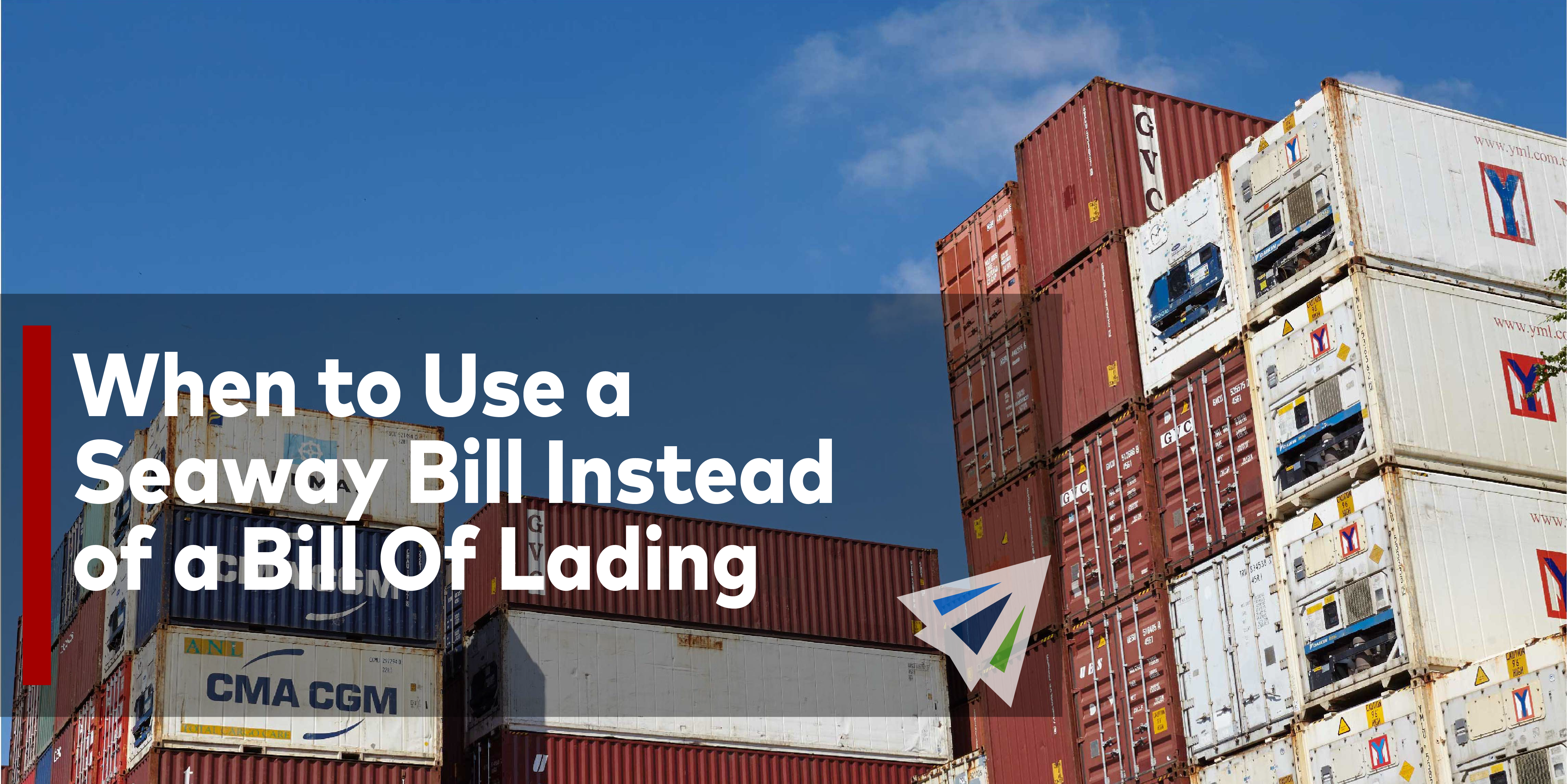We’ve been talking quite a bit about Seaway Bills as of recent. Every shipper knows what a Bill Of Lading, or BOL is, but not many know what a Seaway Bill is or entertain the idea of using one for their international ocean shipments. If you haven’t thought about it, it may be time to talk with your team and your shipper/buyer to see if it’s right for you!
When to Use a Seaway Bill for Ocean Shipments
In our prior blog posts we talk about Seaway Bills, what they are, how they are used, and why shippers often resort to them. If you are unfamiliar with the topic, head over there to get the gist of things!
If you already know what Seaway Bills are and are wondering whether or not they are right for your team to use, here are a few of the reasons you may want to use them over a regular Bill Of Lading:
Expedite the Shipping Process
Seaway Bills are also referred to “Express Bills” because they’re significantly faster than regular Bills Of Lading. Why?
Well, as you know, a regular Bill Of Lading serves three purposes – one of which is “Transfer of Cargo Ownership”. The shipper in possession of the actual Bill Of Lading is the official owner of the cargo. In the shipping industry, before your cargo can progress to the next step, you need to be in possession of that original BOL at some point. That requires the shipper to get it to you on time so you can make the appropriate calls during the shipping process.
Since Seaway Bills do not serve as a transfer of cargo ownership, the cargo ownership is sacrificed as soon as the cargo is shipped. Thus, there is no chance your cargo will be stalled while waiting for documentation. As soon as it sets sail, it’s en route to its destination! Seaway Bills can be a huge time and money saver.
You Trust the Shipper
As stated before, the primary difference between Seaway Bills and regular Bills Of Lading is that Seaway Bills to not account for cargo ownership. The cargo ownership is sacrificed at the beginning of the shipping process, so no documentation is required to prove it.
Obviously, this speeds things up since the importer isn’t waiting for the original BOL, however, it’s also a pretty risky method of shipping. If you’re the shipper and you don’t trust the buyer, you wouldn’t want to ship via Seaway Bill unless everything has been paid for 100% ahead of time. Don’t leave anything to invoices.
However, if you are working frequently with the same buyer and have an established and trusted relationship, Seaway Bills may be a great way to make your logistics process more efficient and cost-effective.
Frequent Imports from Same Shipper
Similar to the point above, Seaway Bills work great if you are frequently shipping with the same shipper/buyer. With frequent shipments, cargo is continuously traveling along the same route which means you should do everything you can to expedite the process and streamline any shipments that move along that lane. Seaway Bills are a great way to do that.
If you are shipping frequently, chances are that you’ve rarely had a delay due to a Bill Of Lading not arriving on time. However, it happens from time to time if the document shipment is late or you forget to send it out on time. In these instances, it’s almost always a better idea to establish Seaway Bill shipping practices to ensure that each and every shipment moves seamlessly from point A to point B.
In Summary
“Efficiency” is the name of the game when it comes to Seaway Bills. They serve the same purpose as a regular Bill Of Lading with the exception of “Transfer of Cargo Ownership”. If you ship using a Seaway Bill, cargo ownership is surrendered the second the cargo leaves. For these reasons, it can be risky if you don’t trust the buyer. However, if you are frequently working with the same buyer, shipping along the same routes, and you trust them, using a Seaway Bill for your shipments can help to speed things up and save on potentially lost time and money spent waiting for the original BOL to arrive for every shipment.
If you have questions about Seaway Bills or would like advice on your current shipping processes, please don’t hesitate to reach out to one of our team members! We are incredibly experienced with ocean shipments, Bills Of Lading, and Seaway Bills, and would love to offer any advice or answer any of your questions!
